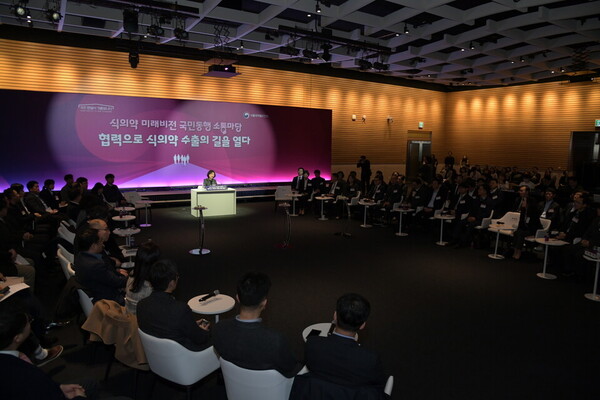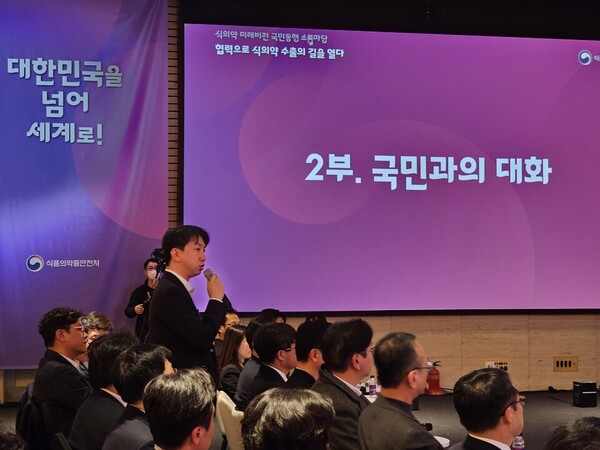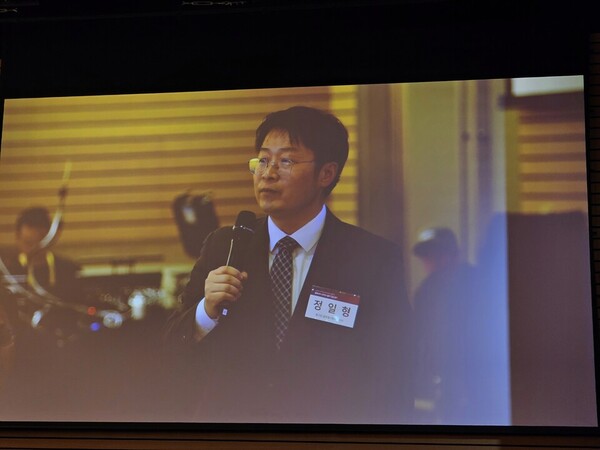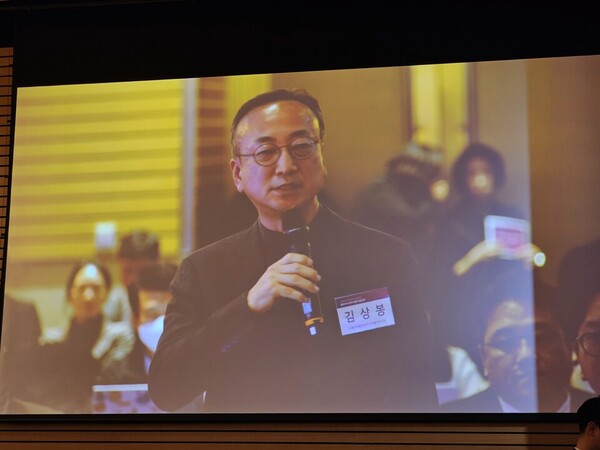
At a government-business meeting early this week, the Ministry of Food and Drug Safety (MFDS) announced its intention to support exporting Korean medical products based on regulatory harmonization. Welcoming the move, pharmaceutical companies made several requests to open the way for exporting their medicines and medical devices through international cooperation.
On Tuesday, the ministry held the Communication and Cooperation for the Future Vision of Food and Medicine. It unveiled its vision of "a world where food safety becomes an everyday reality" and introduced its core values of “science, field, and cooperation.”
Under the theme of “cooperation,” one of its core values, the MFDS explained the current status of global cooperation and export support policies.
Key MFDS officials and business executives from about 70 food, drug, medical device, and cosmetics companies and officials from various business associations attended the event to share views on support measures needed to expand exports. Corporate participants focused their remarks on requests to the food and drug regulator.
For instance, Kim Do-young, head of Daewoong Pharmaceutical's global business headquarters, stressed the need to expand the mutual GMP recognition agreement.
"Since the MFDS joined the Pharmaceutical Inspection Cooperation Scheme (PIC/S), ASEAN and Latin American countries have been exempted from GMP due diligence, resulting in shorter drug approval periods and reduced costs and manpower for due diligence preparation," Kim said. “Recently, Daewoong’s Fexuclue (fexuprazan) won approval in Mexico faster than expected thanks to the GMP due diligence exemption."

Kim said that Daewoong hopes the government will finalize GMP mutual recognition agreements with other countries, including Brazil, Saudi Arabia, and Russia, which are regional hubs.
“Mutual recognition in these countries will open up more avenues and lower barriers to entry for exports to these countries and their neighbors. It will create a conducive environment for the export of domestic medicines," he added.
In response, Kim Sang-bong, director-general of the Drug Safety Division at MFDS, said, "Every country takes a sensitive and conservative approach to protecting the health of its citizens, which is why national credibility in the field of pharmaceutical GMP is very important. To enhance our credibility, MFDS has promoted PIC/S membership, EU White List status, and inclusion in the World Health Organization’s WHO Listed Authorities (WHO WLA), significantly increasing national credibility."
"In 2019, we signed a de facto mutual recognition agreement with Switzerland through the GMP Agreement on Mutual Reliance (AMR), and our cooperation with Singapore has made progress and is coming to fruition," Kim said. "GMP mutual recognition is on the agenda in all our international relationships, including those mentioned above. We will do our best to report good results in the future."
Corporate participants also pointed out that follow-up measures should be taken to ensure that the MFDS's registration with the WHO WLA is effective in business.
"For the WLA listing to be effective, other countries must recognize Korea as a reference country. To this end, we request that the MFDS take follow-up measures," said Chung Il-hyung, director for global business at Chong Kun Dang. "If Korea introduces its excellent regulations to its foreign counterparts and provides opportunities to communicate with overseas regulators, it will greatly help Korean medical products’ exports."

Minister of Food and Drug Safety Oh Yu-kyoung said, "Last year, the public and private sector traveled to Vietnam to meet with local regulators. We expect MFDS to help companies meet with foreign regulators, making it difficult for them to meet alone, and we would like to activate more joint support groups. I don't know which countries we will visit this year, but I hope we will go where our companies need us the most."
Kim Soo-mi, a managing director for the global business division at Jeil Pharmaceutical, said, "We export finished drugs and raw materials. However, when registering products overseas, the Korean Pharmacopoeia is not recognized internationally, so separate test method validation data is often requested, posing difficulties advancing to overseas markets."
Kim went on to say, "We would like to see the Korean Pharmacopoeia revised as soon as possible to be in line with the International Conference on Harmonization (ICH) guidelines, and we would appreciate it if the excellence of the Korean Pharmacopoeia could be widely known overseas so that it can be accepted internationally. In particular, we hope it will be recognized in China and Vietnam, our major export markets."
In response, MFDS Director-General Kim said, "We are constantly revising the Korean Pharmacopoeia and are publishing the latest English version. We are also pursuing membership in the Pharmacopeia Discussion Group (PDG). Through these efforts, we will do our best to ensure that the Korean Pharmacopoeia is recognized internationally."
Lee Ji-eun, director of Waycen, a medical artificial intelligence development company, said, "When we get a medical device license in Korea and introduce our product overseas, we get a lot of attention. I can feel the interest in Korea's medical device licensing system. “However, we have to get licensed again locally to export our products, which takes time and money."
Lee went on to say, "Recently, guidelines for medical AI and software medical devices have been created overseas. I would like to see cooperation between regulatory agencies so that Korea's well-established licensing system and guidelines can be reflected in international standards to strengthen the competitiveness of our technology."
In response, Lee Nam-hee, director-general for the Medical Device Safety Bureau, said, "The Korean medical device industry exports more than 60 percent of its products. MFDS knows the industry faces high barriers to getting approval from foreign regulatory authorities. We are actively participating in the International Medical Device Regulators Forum (IMDRF) and playing a leading role. As you said, we will work harder to ensure our guidelines become international standards."

There were also calls for the government to pay more attention to dental devices, which account for a large share of medical device exports.
Choi Ik-joon, vice chairperson of the Korea Dental Devices Industry Association, said, "I would like to ask for your support and interest in the dental industry, and in particular, I would like you to look at it as an industry with its specialty, not just as one of the medical devices. Unlike in the past, when there was a lack of awareness of oral health, the dental industry is now very advanced. However, there are few opportunities to showcase the industry's progress to policymakers."
Choi went on to say, "There are many international exhibitions related to the dental industry, and many Korean manufacturers are attending. It would be a great opportunity to hear which companies are leading the industry, how wide the gap is between countries and the challenges of Korean companies attending such exhibitions."
MFDS officials emphasized the need for the pharmaceutical industry to work with the government to raise the country's profile on the international stage.
"Last year, there were issues related to drug quality," Director-General Kim said. “Nowadays, these issues are known overseas through foreign media, and since we belong to international organizations, we have to share all such issues mechanically. Therefore, I ask companies to do their utmost to prevent such issues."
The MFDS plans to continue the “SOP (Science, Field, and Cooperation) for Food and Drug Safety” meeting starting with this event.

